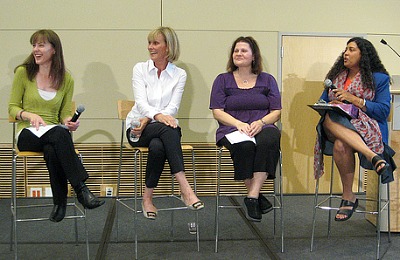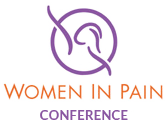
For Grace’s Women In Pain
Awareness and Education Project
What is Women In Pain Project?
For Grace’s Women In Pain Project (“WIP”) is an awareness and education campaign that aims to promote better care and wellness for women challenged by chronic pain and to bring to light the disparity they face in the assessment and treatment of their pain conditions.
WIP Objectives
- Empower women in pain to become better advocates for their pain care and well-being
- Sensitize the public and media to gender disparities in the assessment and management of women’s pain and chronic pain in general
- Enlighten policy makers about chronic pain as a major national health crisis
Why is the Women In Pain Project Necessary?
Numerous studies in recent years have established that women are more likely to be undertreated for their pain. A comprehensive report published in 2001 in the Journal of Law, Medicine and Ethics further concluded, “Women’s pain reports are taken less seriously than men’s, and women receive less aggressive treatment than men for their pain.” It added, “Women are more likely to have their pain reports discounted as ‘emotional’ or ‘psychogenic’ and, therefore, ‘not real.’”
According to the National Institutes of Health, women experience more pain (lower threshold and tolerance) than men and are more prone to chronic pain disorders such as Fibromyalgia, pelvic pain, rheumatoid arthritis, Complex Regional Pain Syndrome, migraines, etc. Other research has concluded women are more likely to develop a chronic pain syndrome after experiencing trauma similar to that experienced by a man.
Many troubling paradoxes have emerged in regard to women and their pain management.
While women have a higher pain-related disorder prevalence, and are more biologically sensitive to pain, their pain reports are more likely to be dismissed and treatment delayed compared to their male counterparts.
Although women have more coping mechanisms to deal with pain, this may contribute to a general perception that they can tolerate more pain and that their pain does not need to be taken seriously.
Despite the fact that women more often and earlier report their pain to a heath care provider, they are more likely to have their pain characterized as having an “emotional” and “psychological” causation. Accordingly, they are often prescribed sedatives and given referrals for psychiatric counseling.
The effects of the above (and other) factors taken together are compounded by the inability and/or unwillingness of society, as a whole, to acknowledge the existence, persistence, and adverse impact of gender biases. Further, health care providers are woefully undereducated regarding pain and its management in general.
For Grace recognizes women of all ethnic and cultural backgrounds experience greater suffering from unrecognized, unacknowledged and under-treated pain which leads to a wide range of negative psycho-socio-economic life disruptions. More specifically, the possibility of extensive harm to families and children is very real due to a woman’s traditional role as family caregiver and ever-increasing role as monetary provider.

